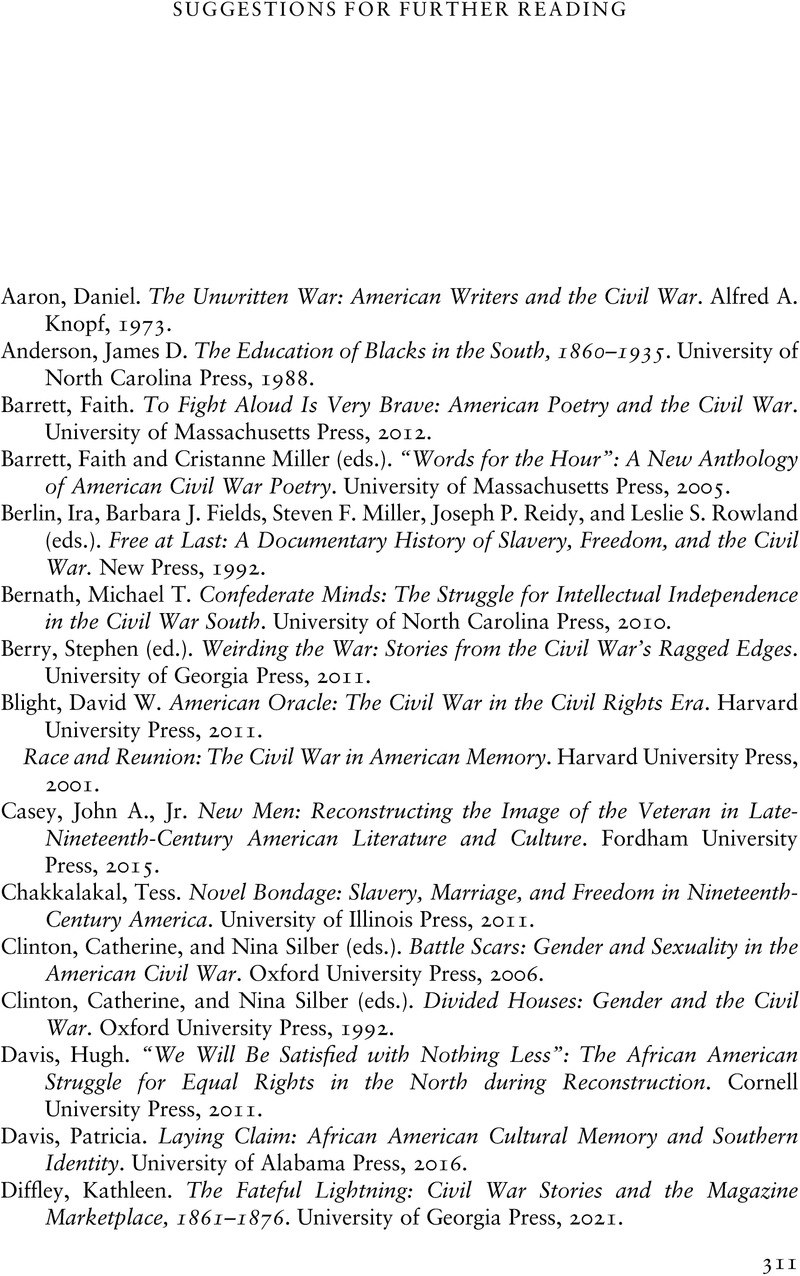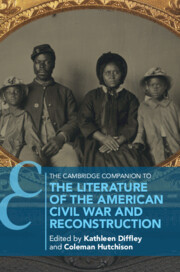Book contents
- The Cambridge Companion to the Literature of the American Civil War and Reconstruction
- The Cambridge Companion to the Literature of the American Civil War and Reconstruction
- Copyright page
- Dedication
- Contents
- Figures
- Contributors
- Acknowledgments
- Chronology
- Introduction
- Part I The Blind Ruck of Event
- Part II Worlds Made and Remade
- Suggestions for Further Reading
- Index
- Cambridge Companions to …
- References
Suggestions for Further Reading
Published online by Cambridge University Press: 04 August 2022
- The Cambridge Companion to the Literature of the American Civil War and Reconstruction
- The Cambridge Companion to the Literature of the American Civil War and Reconstruction
- Copyright page
- Dedication
- Contents
- Figures
- Contributors
- Acknowledgments
- Chronology
- Introduction
- Part I The Blind Ruck of Event
- Part II Worlds Made and Remade
- Suggestions for Further Reading
- Index
- Cambridge Companions to …
- References
Summary

- Type
- Chapter
- Information
- The Cambridge Companion to the Literature of the American Civil War and Reconstruction , pp. 311 - 314Publisher: Cambridge University PressPrint publication year: 2022



